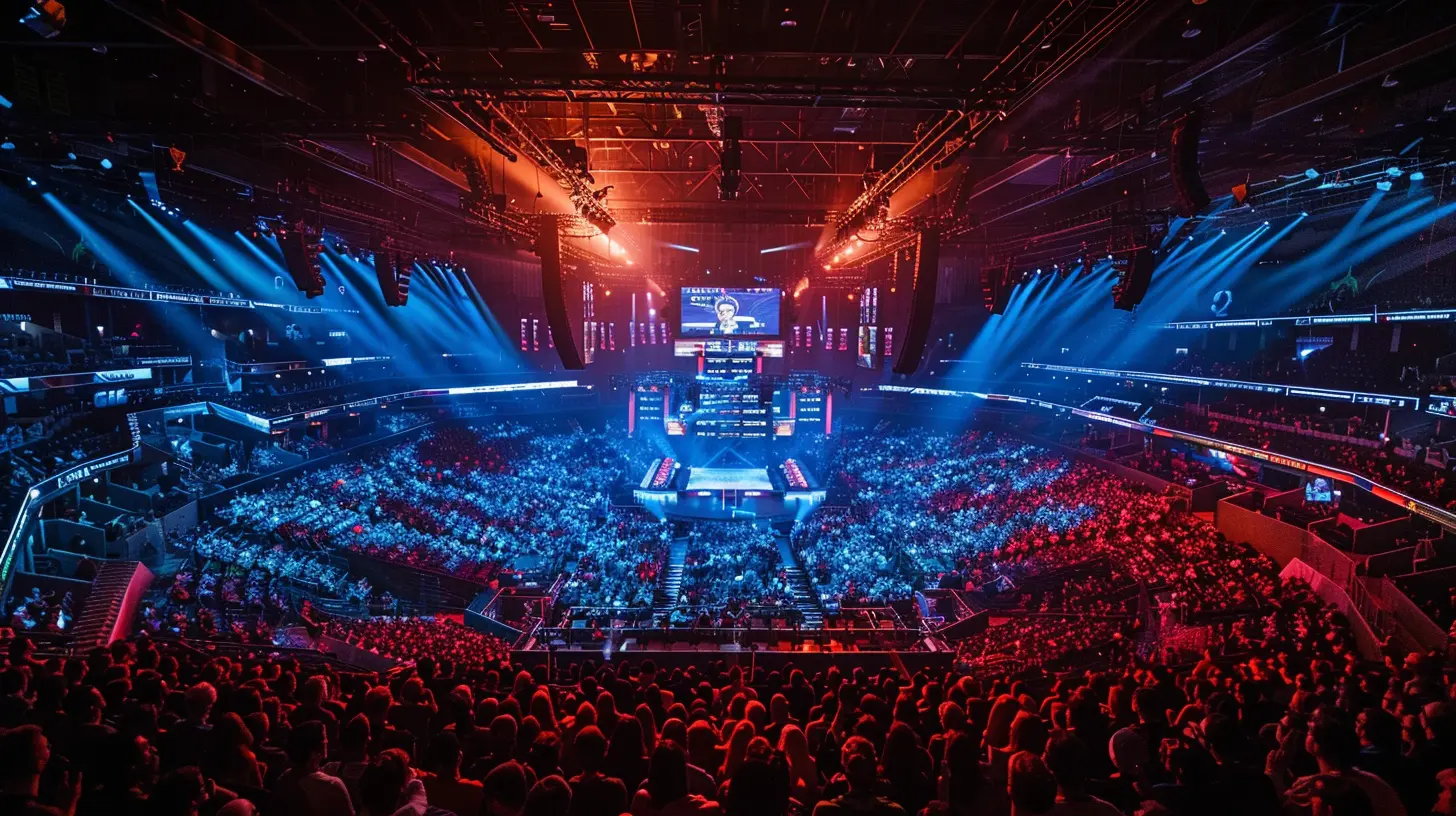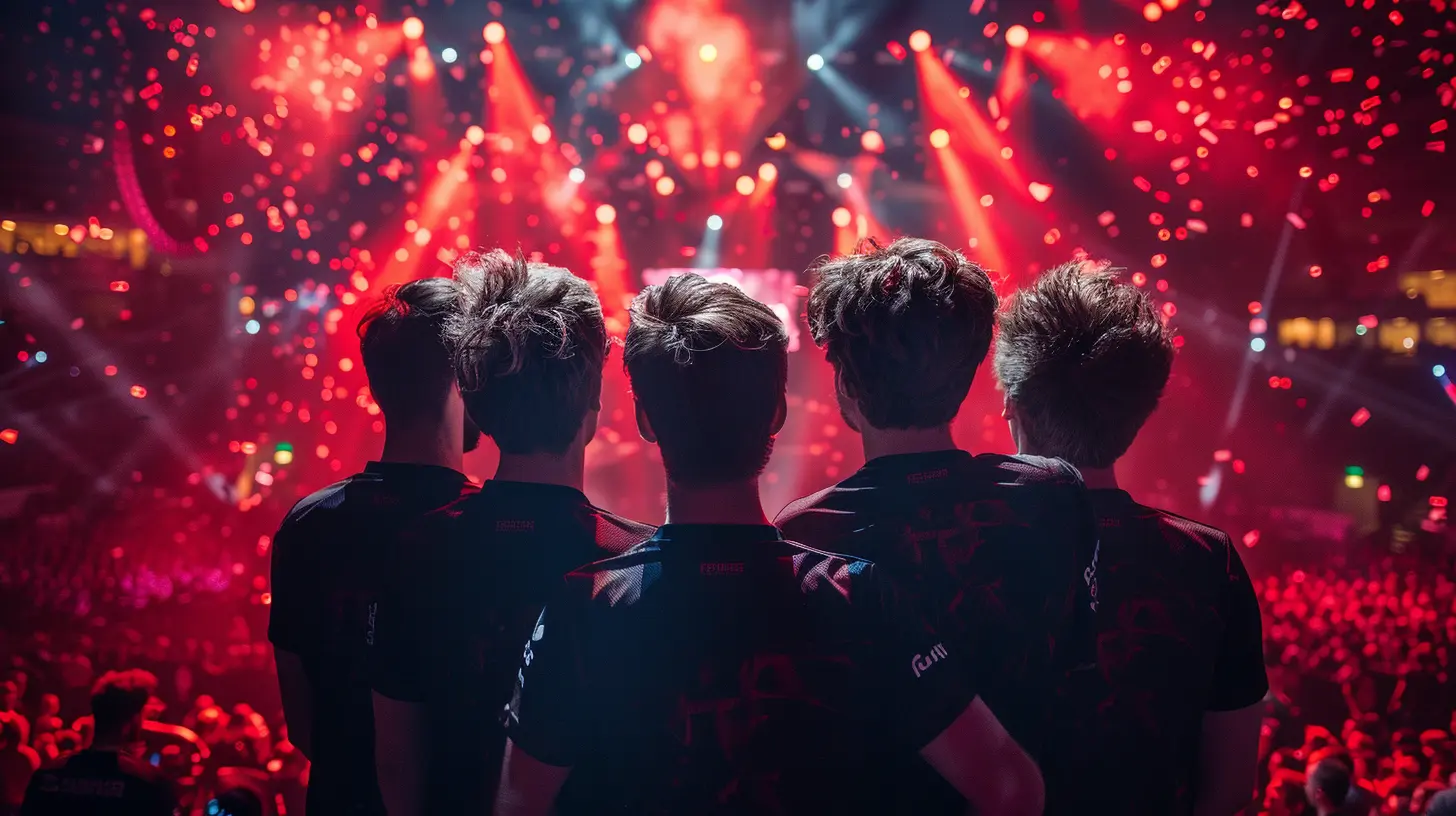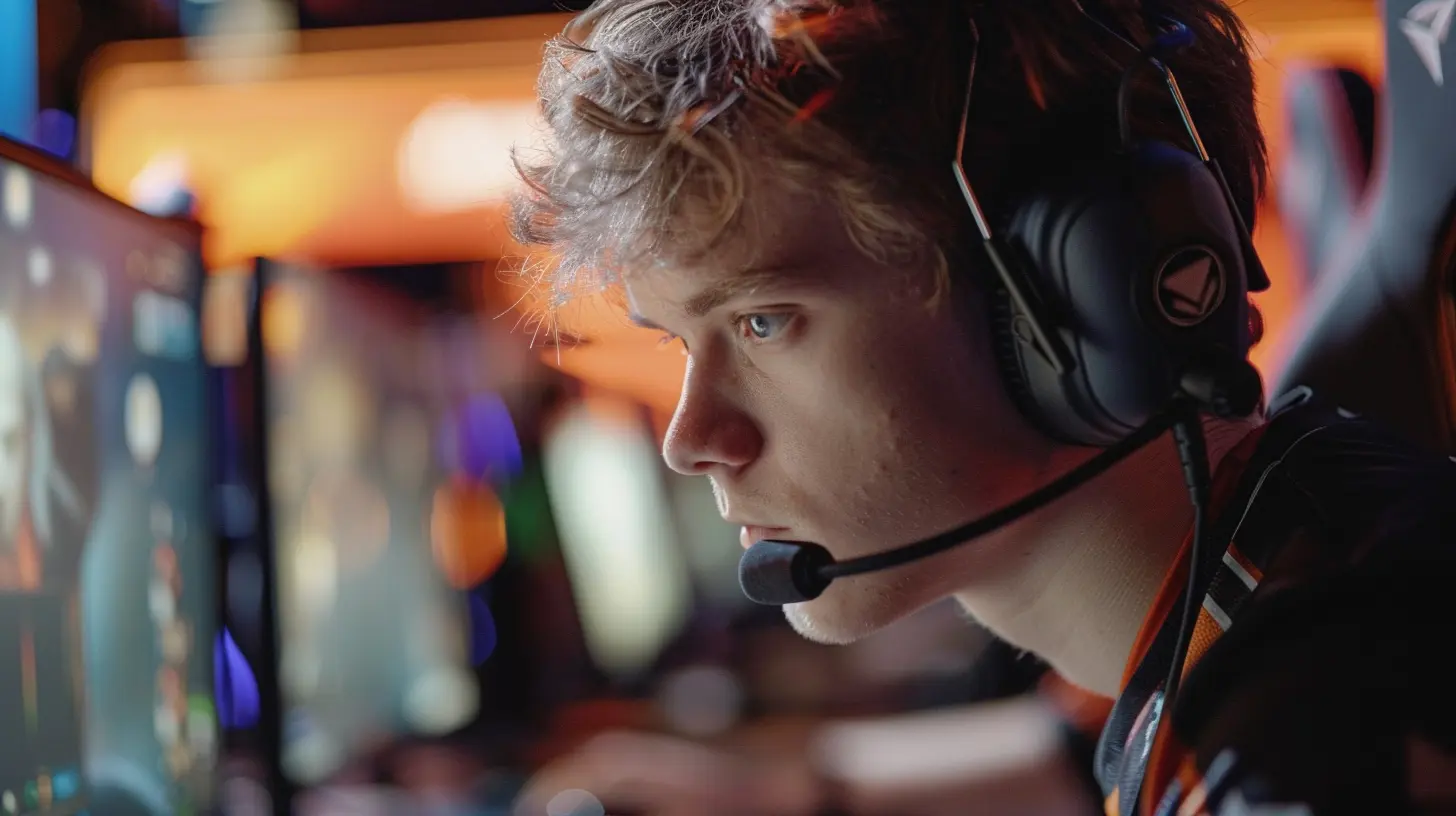The Science of Team Communication in Professional Esports
18 December 2024
Teamwork makes the dream work, right? But in professional esports, teamwork isn’t just about working together—it’s about communicating like your life (or rather, your avatar's life) depends on it. Whether you're coordinating an ambush in League of Legends or calling the shots in Counter-Strike: Global Offensive, communication is the unsung hero of victory. But what exactly goes into the science of team communication in esports? How do players talk, listen, and adapt so seamlessly when milliseconds mean everything?
In this article, we’re diving deep into the fascinating world of esports communication—breaking down why it matters, how the top teams do it, and how you (yes, you!) can level up your own team communication skills. 
Why Team Communication Is Crucial in Esports
Let’s get one thing straight: Esports isn’t just about button-mashing or aim training (although, let’s be real—those are vital too). Behind every clutch play, insane comeback, or nail-biting win is a team that knows how to talk to each other.Think about it—team communication is the glue that holds everything together. It’s how players share critical information, adapt to changing strategies, and keep their cool under pressure. Without effective communication, even the most skilled players can feel like they’re in a chaotic free-for-all.
In esports, where the margin between victory and defeat can be as thin as a single pixel, poor communication can mean the difference between glory and a painful "Defeat" screen. 
The Psychology of Communication in Esports
To understand the science of team communication, we first need to dip our toes into a bit of psychology. Don’t worry, I’m not going full professor on you—but it’s worth knowing how our brains work under pressure.When you're in a high-stress scenario (like, say, a sudden 1v3 clutch in Valorant), your brain kicks into overdrive. Stress hormones flood your system, your heart rate spikes, and you enter fight-or-flight mode. This is where communication shines—or falls apart.
Stress can mess with communication. Some players talk too much, flooding the team with unnecessary chatter. Others freeze up entirely, leaving their teammates in the dark. Skilled teams overcome this by practicing deliberate, disciplined communication. They know what to say, when to say it, and how to stay calm under fire. 
Key Elements of Effective Esports Communication
Want to know what separates the pros from the rest of us? Their communication skills are next level. Here are some of the pillars of effective team communication in esports:1. Clear and Concise Callouts
Picture this: You're mid-game, and a teammate starts rambling, "Uh, so I think I saw one of their players near…uh…maybe B site? Or was it mid? Anyway, watch out for…." BAM. Too late, you’re out.The pros avoid this mess with precise callouts. Instead of saying, “Uh, enemy near the bomb,” they say, “One A site, planting.” It’s short, it’s sweet, and it gets the job done.
2. Staying Positive, Even Under Stress
Nobody likes a teammate who tilts the entire squad. Trash-talking your own team after a misplay? That’s a fast track to disaster. Professional esports players stay focused and positive, boosting morale even when things look grim.Pro tip? Replace negative feedback with constructive comments. Instead of barking, “Why didn’t you cover mid?!” try saying, “Next round, let’s keep an eye on mid together.” It keeps the vibe positive and helps avoid unnecessary arguments.
3. Non-Verbal Communication
Did you know that communication in esports isn’t just about what you say? Yep, non-verbal cues are huge. Whether it’s pings on the minimap, flashing your ultimate cooldown in Overwatch 2, or a quick crouch spam to signal danger, non-verbal communication keeps the team synced without mic clutter.
Communication Styles in Esports Teams
Just like every player has a unique playstyle, every team has its own communication style. Let’s explore a few common ones:1. The Shotcaller Command Center
Every team needs a leader—a shotcaller who directs traffic and makes split-second decisions. This person’s voice is the beacon during chaos. They’re often the in-game leader (IGL) in games like CS:GO or Rainbow Six Siege.The shotcaller’s role isn’t just about barking orders; it’s about reading the game, synthesizing information from teammates, and making the call. It’s like being the captain of a ship in a storm.
2. The Distributed System
Some teams don’t rely as heavily on a single shotcaller. Instead, they distribute decision-making across the team. In these setups, every player contributes to the conversation, offering intel and suggestions.While this can make the team more versatile, it requires a lot of trust and chemistry. Everyone needs to be on the same wavelength, or it can spiral into chaos.
3. Silent Coordination
Then there are the teams that hardly talk at all. These are rare, but they exist. These squads rely on insane synergy, pre-agreed strategies, and non-verbal communication. While it can be tough to pull off, when it works, it’s like watching mind-reading in action.How Top Esports Teams Perfect Communication
Wondering how your favorite esports team seems to communicate effortlessly? Spoiler alert: It didn’t happen overnight. Elite teams pour endless hours into refining their comms.Here’s how they do it:
1. Repetitive Practice = Muscle Memory
Top teams scrimmage constantly, practicing not just their gameplay but their comms. They drill scenarios repeatedly until communicating becomes second nature. Kind of like learning to ride a bike—eventually, you don’t even think about it.2. Reviewing the VODs
VOD (video on demand) reviews are a game-changer. Teams analyze their gameplay footage, not just for mechanics but for communication. Did someone miss a crucial callout? Did the comms get too chaotic during a clutch moment? Rewatching games helps teams pinpoint weaknesses and improve.3. Utilizing Coaches
Most pro teams have coaches who work on more than just strategy. A good coach focuses on team dynamics, helping players communicate better and resolve conflicts. It’s basically esports therapy.How You Can Improve Your Own Team’s Communication
Alright, enough fangirling over the pros—let’s talk about you and your squad. How can you channel the communication skills of elite esports teams? Whether you're a ranked warrior or a casual weekend gamer, these tips can help:1. Practice Callouts
Get familiar with the maps and learn standard callouts. The more comfortable you are with the terminology, the faster you can relay info to your team.2. Keep It Simple
Don’t overthink it—say what needs to be said and skip the fluff. No one has time for an entire monologue when grenades are flying.3. Stay Calm and Collected
Even if things go south, keep a cool head. Freaking out (or worse, yelling at teammates) only makes things harder. Take a breath and refocus.4. Record Your Games
Pull a page from the pro playbook and record your matches. Watch them back to spot communication problems—trust me, it’s a game-changer.What the Future Holds for Esports Communication
As esports continues to grow, team communication is going to get even more sophisticated. We’re already seeing teams use custom tools, AI-assisted analytics, and mental performance coaches to gain an edge.Who knows? Maybe one day, we’ll see esports teams using brainwave tech to communicate telepathically. (Okay, that’s a bit far-fetched—but hey, never say never!)
For now, though, the science of communication in esports boils down to one simple truth: Teams that talk together, win together.
Final Thoughts on Team Communication in Esports
Whether you're a casual gamer teaming up with friends or an aspiring pro chasing the leaderboard, communication is the MVP of any successful team. It’s not just about what you say—it’s about how you say it, when you say it, and how your team responds.Mastering communication isn’t easy—it takes time, practice, and, let’s be honest, plenty of patience. But once you’ve got it down, it’s like unlocking a secret weapon. So grab your squad, fire up Discord, and start working on those comms. Who knows? Your name might be on the next esports championship banner.
all images in this post were generated using AI tools
Category:
Esports TeamsAuthor:

Lucy Ross
Discussion
rate this article
11 comments
Ariana McIntyre
What an intriguing exploration of team dynamics in esports! I'm curious about the specific communication strategies that enhance in-game performance. Do certain gaming titles require distinct approaches, or are there universal principles at play?
February 12, 2025 at 5:01 PM

Lucy Ross
Thank you for your comment! While certain gaming titles may necessitate specific communication strategies due to their unique mechanics and team compositions, many universal principles—such as clarity, role awareness, and adaptive communication—are crucial across various esports.
Zevon Wolf
Absolutely loved this article! 🎮 The insights on team communication in esports are fascinating and so relevant! It’s amazing to see how effective collaboration can elevate gameplay and create those epic moments. Cheers to teamwork and gaming greatness! 🌟
January 29, 2025 at 5:08 AM

Lucy Ross
Thank you so much for your kind words! I'm glad you found the insights valuable. Cheers to teamwork and the exciting world of esports! 🎮🌟
Kristina Stone
Great insights on teamwork! Effective communication truly enhances performance in high-stakes esports environments. Well done!
January 25, 2025 at 5:28 PM

Lucy Ross
Thank you! I'm glad you found the insights valuable. Effective communication is indeed crucial in esports teamwork!
Lila McAlister
Effective communication fuels teamwork, enhancing strategy and performance.
January 22, 2025 at 4:26 AM

Lucy Ross
Absolutely! Effective communication is the backbone of successful teamwork, driving both strategic alignment and performance in esports. Thank you for your insightful comment!
Kimberly Myers
Team communication in esports? It's like herding cats with headsets! If players can’t sync up, their chances of winning are about as good as a noob in a pro tournament. Get it together, folks!
January 17, 2025 at 4:42 PM

Lucy Ross
Absolutely! Effective communication is crucial in esports, just like in any team sport. It’s all about finding ways to align strategies and foster synergy among players to boost performance and increase their chances of victory.
Cadence Evans
Great article! Understanding the intricacies of team communication in esports is crucial. Effective strategies can significantly enhance player synergy and performance, ultimately shaping the outcome of competitive matches.
January 10, 2025 at 5:59 AM

Lucy Ross
Thank you! I'm glad you found it valuable. Effective communication is indeed a game-changer in esports!
Thorne McAndrews
Team communication in esports isn’t just important; it’s everything. Without seamless synergy, even the most skilled players falter. Mastering this art separates champions from the rest. Time to level up!
January 1, 2025 at 6:04 AM

Lucy Ross
Absolutely! Effective communication is the cornerstone of success in esports, often making the difference between victory and defeat. Mastering it is essential for any team aiming for the top.
Cecilia McClain
This article brilliantly highlights how effective communication strategies can enhance teamwork in esports, illuminating the intricate psychology behind successful gaming collaborations. A must-read for enthusiasts!
December 27, 2024 at 5:20 AM

Lucy Ross
Thank you for your kind words! I'm glad you found the article insightful. Effective communication is indeed crucial in esports teamwork!
Elwynn Ford
This article beautifully highlights the vital role of communication in esports. It underscores how teamwork truly transforms gameplay. Great read!
December 25, 2024 at 3:49 AM

Lucy Ross
Thank you for your kind words! I'm glad you found the article insightful and appreciated the focus on communication and teamwork in esports.
Vesper McBride
Key insights, yet lacks practical applications for aspiring teams.
December 21, 2024 at 4:44 AM

Lucy Ross
Thank you for your feedback! We appreciate your point and will strive to include more practical applications in future articles.
Zaid Duke
Fascinating insights! I wonder how communication strategies in esports compare to traditional team sports. Any surprising parallels?
December 18, 2024 at 4:04 AM

Lucy Ross
Thank you! While both esports and traditional sports emphasize clear communication and teamwork, esports often relies more on real-time tactical discussions due to the fast-paced nature of the games. Surprisingly, both also value non-verbal cues and trust among team members, highlighting the universal importance of effective communication across different sports.
MORE POSTS

Why Game Soundtracks Deserve More Recognition in the Music Industry

How to Build the Ultimate Deck in Card Battler Games

The Dangers of Burnout: Surviving a Grueling Tournament Schedule

VR Games That Will Blow Your Mind

The Importance of Community in Beta Testing

How Fanbases Shape the Identity of Esports Teams

The Latest Patch and Its Impact on Competitive Play

Discovering Free Steam Games: Best Titles That Won’t Cost You a Cent